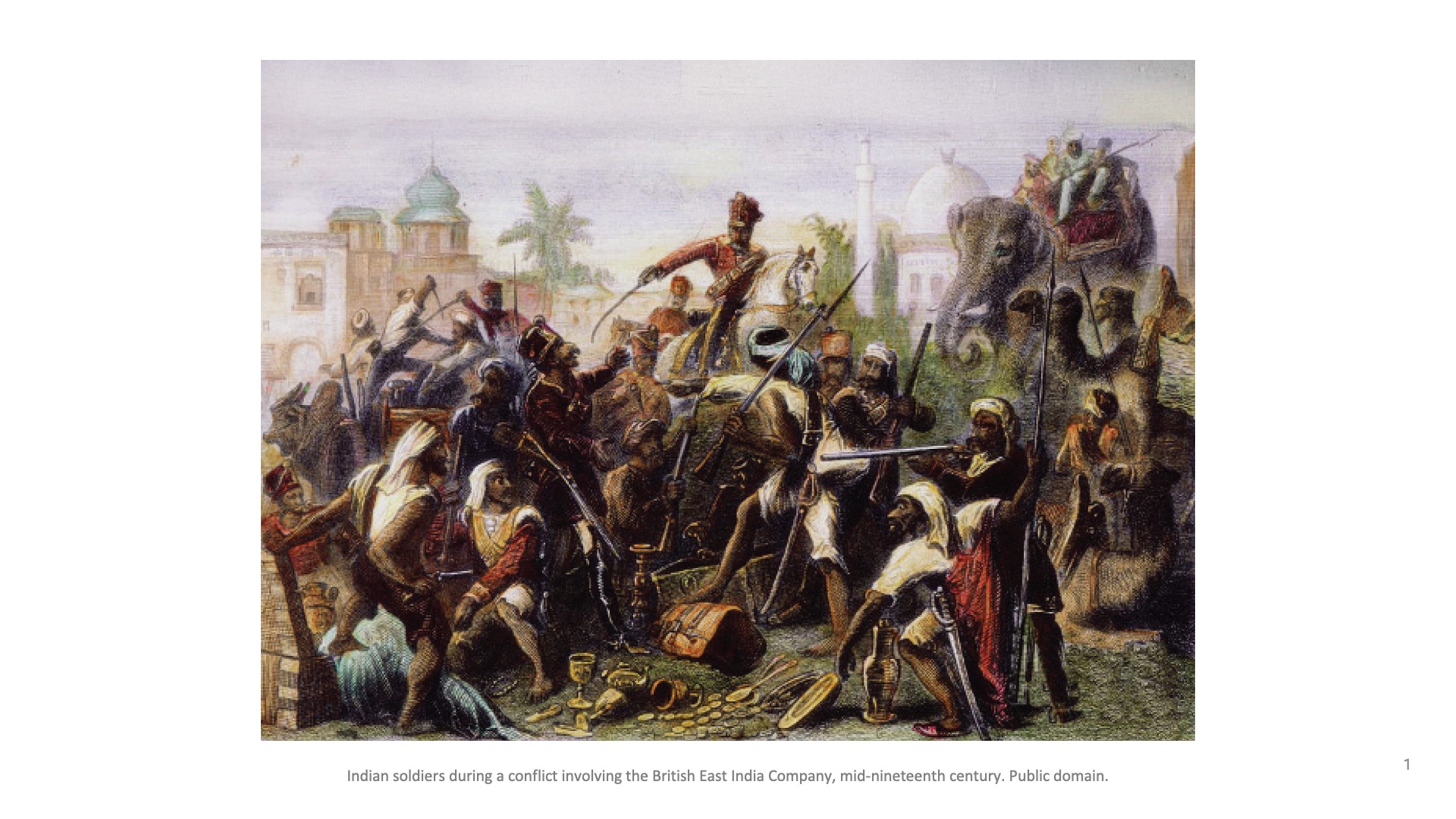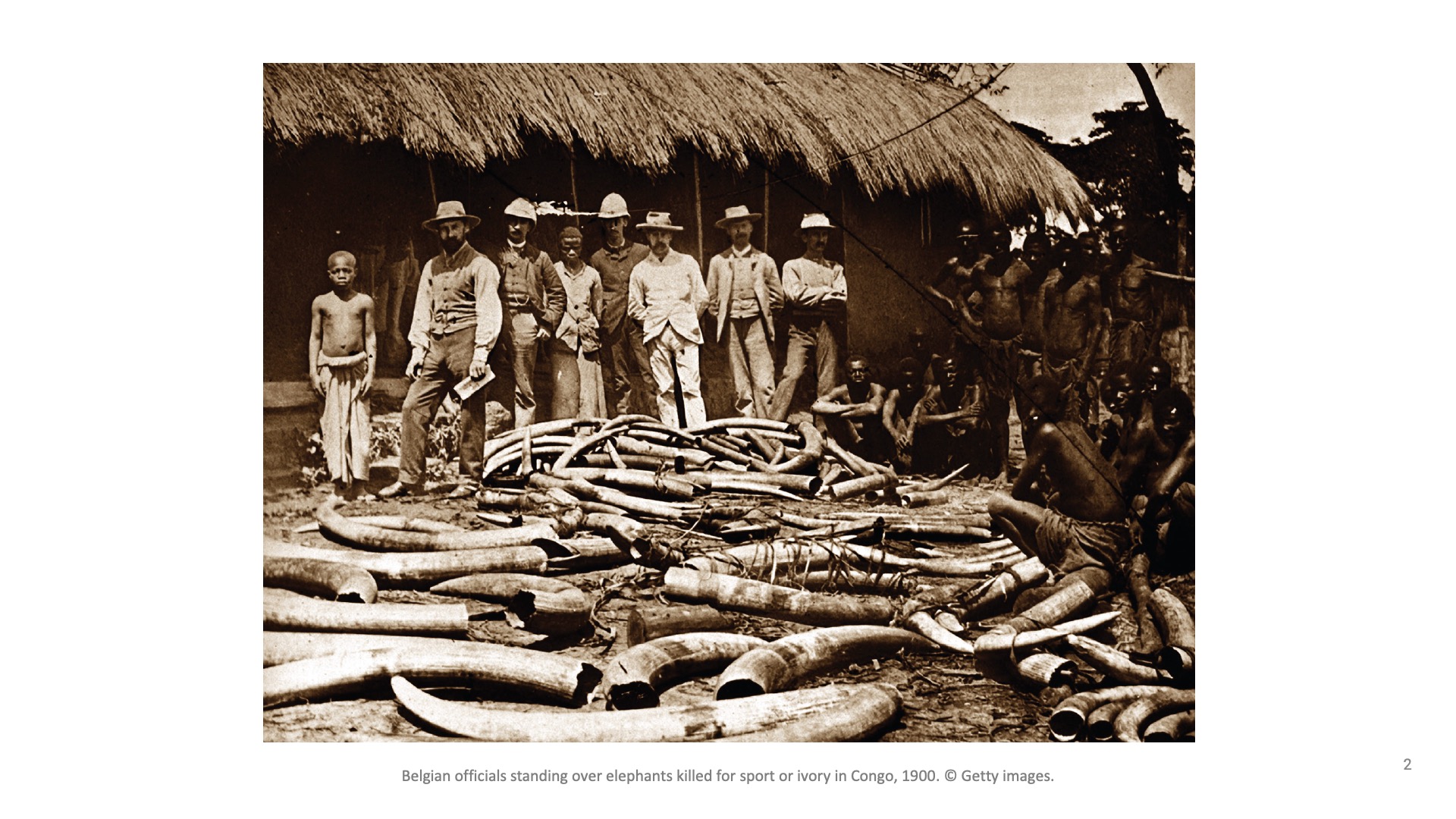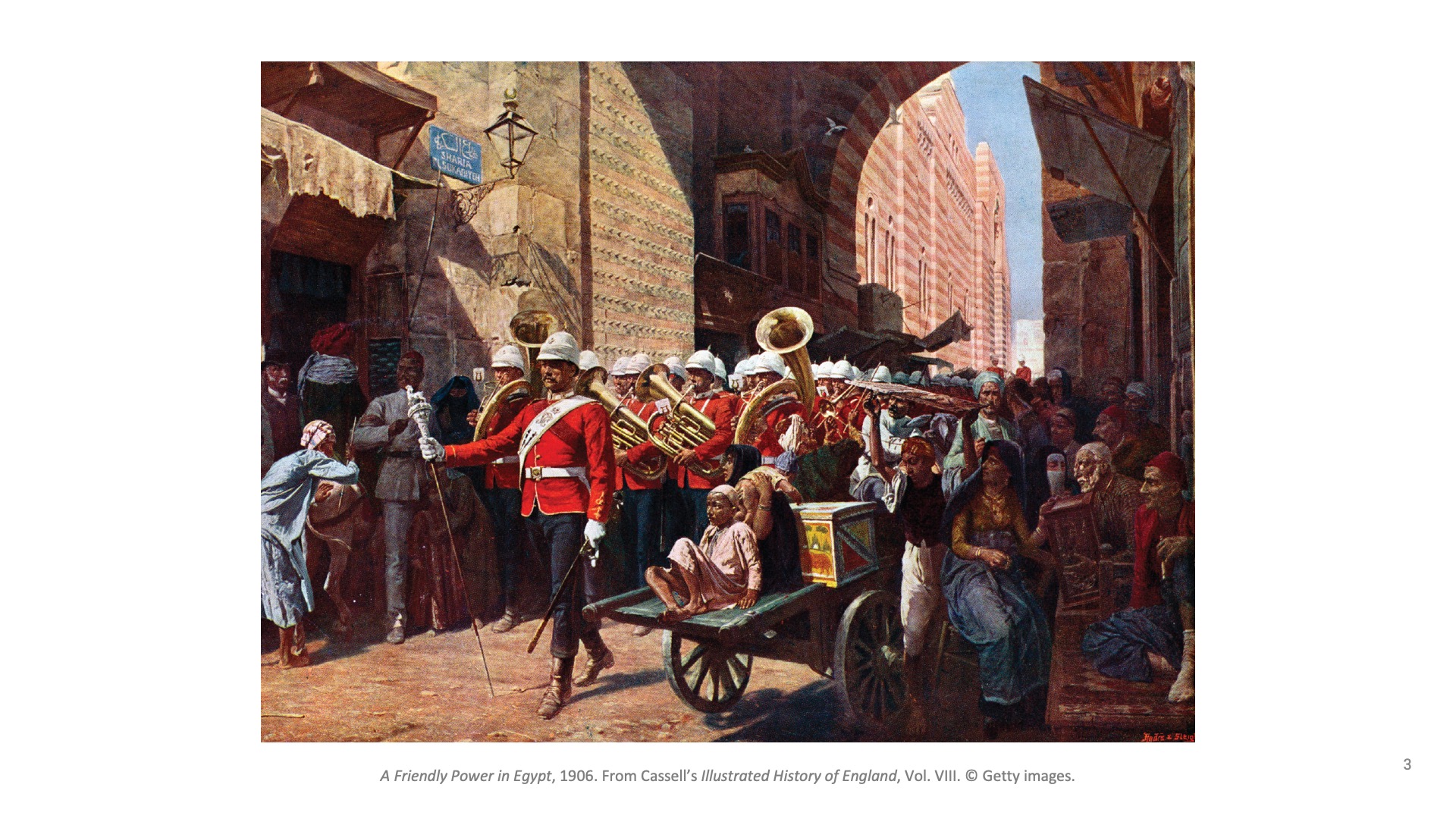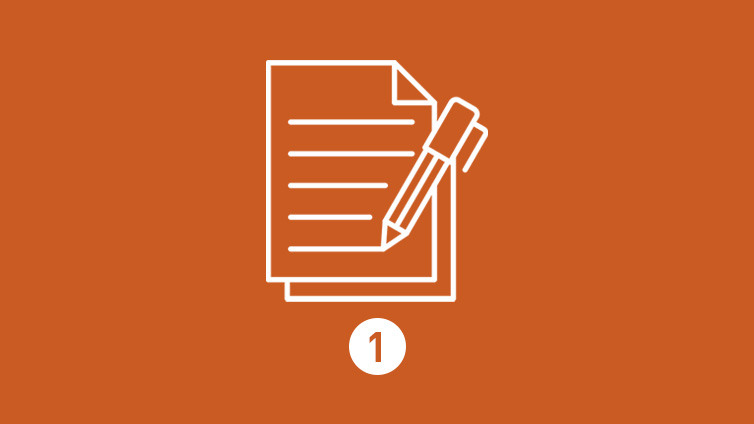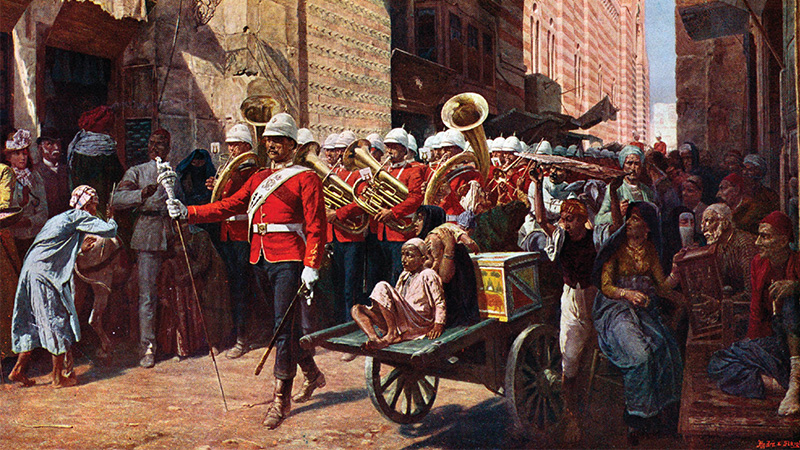Imperialism, Colonialism, and Responses
Teacher Resources
Driving Question: How did imperialism evolve during the nineteenth century?
In the nineteenth century, empires didn’t slow down; they expanded more rapidly and aggressively. Land, labor, and lives were taken in the name of civilization, but opposition from colonized peoples offered a different perspective.
Learning Objectives:
- Identify how industrialization led to imperialism and the expansion of empires.
- Evaluate how imperialism changed communities, networks, and production and distribution during the nineteenth century.
- Utilize close-reading skills to consider how various trends contributed to a new age of imperialism.
Vocab Terms:
- citizen
- colonialism
- empire
- imperialism
- industrialization
- racial superiority
- subject
Opener: Imperialism, Colonialism, and Responses
To teach this lesson step, refer to page 2 of the Lesson 5.1 Teaching Guide.
Consider using the Three-Step Reading with students to “read” visuals. First, get the big picture. Then, zoom in on details. Finally, think about what the image means. Learn more in our Reading Guide.
Imperialism shaped the world as it evolved during the nineteenth century. What can comparing images tell you about this big moment in history?
Evolving Empires: A Look Ahead
Looking Ahead
To teach this lesson step, refer to page 3 of the Lesson 5.1 Teaching Guide.
Explore ideas for using Unit Notebooks by checking out this thread in the OER Project Teacher Community.
In this unit, you’ll explore how imperialism expanded in the nineteenth century. This activity offers a glimpse into those changes—use it to start predicting what’s to come.
Industrial Empires
To teach this lesson step, refer to page 3 of the Lesson 5.1 Teaching Guide.
The OER Project Video Guide provides great information on best practices for using video in the classroom.
Imperialism expanded in the nineteenth century, but it looked different across regions. Use these materials to start thinking about how power, resistance, and inequality shaped this global era.
-
Guiding Questions
-
Before you watch
Preview the questions below, and then review the transcript.
While you watch
Look for answers to these questions:
- How does the video define empire? What’s surprising about the nations that held empires in this era?
- What’s the difference between imperialism and colonialism? How are they connected?
- Did empires keep growing throughout this time? Why or why not?
- What happened to global income inequality from 1800 to 1975?
- What changes did the French make in Hanoi? How did people respond?
After you watch
Respond to this question: What lasting problems do you think imperialism created for the places that were colonized?
-
Guiding Questions
-
Before you read
Preview the questions below, and then skim the article. Be sure to look at the section headings and any images.
While you read
Look for answers to these questions:
- How did some reformers help support imperialism?
- How did ideas about racial superiority affect people in colonies?
- Why did industrialization make imperialism stronger?
- What does it mean that colonized people were called “subjects”?
- How did people in colonies respond to imperial rule?
After you read
Respond to this question: Do you think the age of empire truly ended, or does a version of it still exist today? Explain your thinking.
Framing Unit 5
To teach this lesson step, refer to page 5 of the Lesson 5.1 Teaching Guide.
This community thread, Frames as an scaffold, provides great ideas for incorporating frames into the classroom.
Learn how to examine imperialism through the lenses of communities, networks, and production and distribution to better understand how empires shaped and disrupted the world.
-
Guiding Questions
-
Before you watch
Preview the questions below, and then review the transcript.
While you watch
Look for answers to these questions:
- How did empires go against the rise of nation-states and political rights?
- How did empires affect industrialization during this time?
- Did reform movements in the nineteenth century improve life in the colonies?
After you watch
Respond to this question: Were empires intentionally built with inequalities in political and social rights—or was that an unintended problem? Explain your thinking.
Closer: Imperialism, Colonialism, and Responses
To teach this lesson step, refer to page 6 of the Lesson 5.1 Teaching Guide.
Now that you know more about imperialism, take another look at the images you examined at the beginning of the lesson.
Essay Review: Organization and Language/Style
To teach this lesson step, refer to page 6 of the Lesson 5.1 Teaching Guide.
A great way to improve your writing skill is to evaluate writing samples. In this activity, you’ll evaluate your own writing or a sample essay using the Organization and Language/Style rows of the OER Project Writing Rubric.


